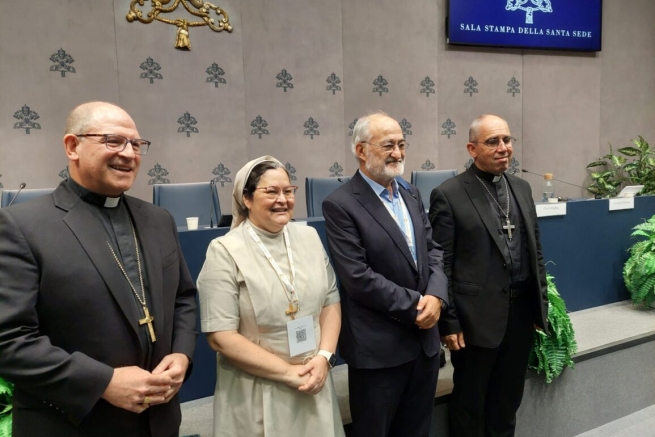Asked about the German synod, with its own agenda, compared to the current Vatican synod that indirectly involved millions of Catholics, the Cardinal replied: "Although I do not know all the details of the German synodal path, I believe that they also necessarily interacted with the Pope and with the entire universal Church and this blocked certain paths and directions they were taking."
This means that "synodality implies mutual listening, because no one can make the journey alone, and this applies not only to individual, but also to the particular Churches".
He added that synods "become valid when the authority recognises them" and exemplified this by indicating that "the Second Vatican Council and ecumenical councils are valid when the Pope proclaims them."
And even if these different speeds will cause suffering and moments of darkness and difficulty," the cardinal said, "it is better that these problems arise, because they exist, and it is better to face them and not hide them under the carpet."
The Cardinal Archbishop of Rabat considered that the current Synod "is very enriching because it brings together people from different continents, brings together clergy and laity, men and women, and all this diversity enriches us even if it means we rub up against each other."
He recalled that the Holy Father indicates that isthe Church as very Eurocentric, Westernized, and "I felt this when I got to know Latin America and part of Africa. For this reason, he considered that ‘the Church will emerge from this process more Catholic in the best sense of the term, more universal’".
He then spoke about an African bishop whose diocese is "fertile with vocations, full seminaries and multitudes of baptized, etc.", who "reproached a European bishop for coming to give them lessons, when the Europeans are selling empty churches and everything...".
Therefore, he concluded, "we Europeans may have to learn to be humble... and not only give lessons, but Africans too will have to learn to be humble and not get a big head. Because success does not lie in quantities or numbers that are merely temporary."
In other words, "helping each other to authentically live the Gospel" in a "process of friction" that "does much good, because, otherwise, each one makes the journey on their own and when we open our eyes we discover that we are different Churches and that we are far from each other. This forces us to interact, to listen to each other, to discover things, to surprise and enrich each other."
He considered that "learning synodality is not a simple thing; we will have to go through many setbacks, and many moments in which we will have to apologise to each other".
And he concluded: "I have said it before, there will be hustle and bustle and it will be this that will help all of us to be a little more humble and to let ourselves be enlightened by the Holy Spirit."
Hernán Sergio Mora
Source: Exaudi


